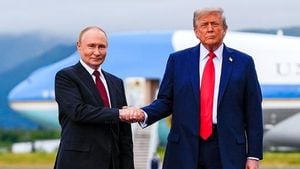Former Brazilian President Jair Bolsonaro, a figure who has rarely been far from the headlines in recent years, is once again at the center of national attention—this time for serious health concerns. Medical tests conducted this week revealed that Bolsonaro, 70, has been diagnosed with early-stage skin cancer, specifically squamous cell carcinoma, according to statements from his medical team and multiple news outlets including CNN Brasil and DW.
The diagnosis followed a Sunday, September 14, 2025, procedure at Brasilia’s DF Star Hospital, where Bolsonaro had eight skin lesions removed for testing. Doctors later confirmed that two of those lesions tested positive for squamous cell carcinoma, a form of cancer that begins in the middle and outer layers of the skin. Dr. Claudio Birolini, Bolsonaro’s physician, explained to reporters, “The tests showed that two of the lesions were an early type of skin cancer.” He further clarified, “This has already been treated through removal, but regular monitoring is required to ensure no new lesions appear and that the removals were complete.”
Dr. Birolini described the cancer as “in situ,” meaning the abnormal cells had not spread to other tissues or organs. While squamous cell carcinoma is not considered the most aggressive form of skin cancer, it is far from benign. “Two of the lesions tested positive for squamous cell carcinoma, which is neither the kindest nor the most aggressive, but it is still a skin cancer,” Birolini told CNN Brasil. The current plan, according to doctors at DF Star Hospital, is for Bolsonaro to undergo clinical monitoring and periodic reevaluation to catch any recurrence or new lesions early.
Bolsonaro’s health woes did not end with the cancer diagnosis. On Tuesday, September 16, 2025, the former president was admitted to DF Star Hospital again, this time suffering from vomiting, dizziness, low blood pressure, and a sensation known as pre-syncope—essentially, feeling on the verge of fainting. After an overnight stay, he was discharged on Wednesday, September 17, and continues to be monitored by his medical team. The hospital confirmed that Bolsonaro’s condition had improved, but he would require ongoing follow-up care.
This latest health scare comes amid an already tumultuous period for the former leader. Less than a week before his cancer diagnosis, Bolsonaro was convicted by a Supreme Court panel of plotting a coup d’etat following his defeat in the 2022 presidential election. Prosecutors alleged that the plot included plans to potentially assassinate current President Luiz Inácio Lula da Silva. The court sentenced Bolsonaro to more than 27 years in prison—specifically, 27 years and three months. He has been under house arrest since early August 2025, after the presiding justice, Alexandre de Moraes, ruled that Bolsonaro had violated precautionary measures imposed for the duration of his trial. His lawyers have vowed to appeal the verdict, maintaining that the former president denies any wrongdoing.
The political drama has not been confined to Brazil. U.S. President Donald Trump, a close ally of Bolsonaro, weighed in on the trial, calling it a "witch hunt" and citing it as one of his reasons for imposing a 50% tariff on Brazilian goods. According to DW, Trump’s intervention has added yet another layer of international intrigue to an already complex legal and political situation. Some observers see Trump’s comments as an attempt to rally right-leaning supporters on both sides of the equator, while others argue that such statements only serve to deepen divisions and complicate diplomatic relations.
Bolsonaro’s recent hospitalization is not his first brush with serious health issues. The former president has previously been admitted for pain related to a wound he sustained during a stabbing on the campaign trail in 2018—a traumatic event that has left him with lingering medical complications. Over the years, he has faced multiple hospitalizations and surgeries as a result of that attack, which nearly cost him his life and became a rallying point for his supporters during his presidential run.
Despite the gravity of his current medical and legal challenges, Bolsonaro’s family has sought to project an image of resilience and optimism. His eldest son, Senator Flávio Bolsonaro, took to X (formerly Twitter) to reassure the public and supporters alike: “My father has already fought tougher battles and won. This one won’t be any different.” The younger Bolsonaro’s message reflects a familiar refrain among the family’s political base, who have long viewed the former president as a survivor and a fighter, both literally and figuratively.
Medical experts stress that while early-stage squamous cell carcinoma is highly treatable, especially when caught before spreading, it does require careful follow-up. According to the hospital’s statement, Bolsonaro will need “clinical monitoring and regular re-evaluation” to ensure that no new lesions develop and that the cancer does not recur. The need for vigilance is underscored by the fact that Bolsonaro had eight lesions removed, with only two testing positive for cancer, raising questions about his overall risk and the potential for future skin problems.
Bolsonaro’s supporters have rallied around him, echoing the sentiment expressed by his son and framing his health struggles as yet another battle to be won. Meanwhile, critics argue that the timing of his health issues, coming so soon after his conviction, adds a layer of complexity to an already charged political environment. With Bolsonaro under house arrest and appealing his sentence, the interplay between his health, legal status, and political future remains a subject of intense speculation in Brazil and beyond.
The case has also reignited debates about the role of the judiciary in Brazilian politics. Some see the Supreme Court’s actions as a necessary defense of democracy, given the gravity of the charges against Bolsonaro. Others, including some international observers, worry about the potential for judicial overreach and the impact of high-profile prosecutions on political stability. The involvement of foreign leaders such as Donald Trump only heightens the stakes, underscoring the global resonance of Brazil’s ongoing political saga.
As Bolsonaro continues his recovery at home under medical supervision, the nation watches closely. His health and legal fate are now deeply intertwined, each influencing the other in unpredictable ways. For a country still grappling with the aftershocks of a contentious election and a polarized society, the story of Jair Bolsonaro’s cancer diagnosis is more than just a medical bulletin—it’s a window into the broader struggles shaping Brazil’s future.
For now, Bolsonaro’s path forward will be determined as much by doctors as by judges, and the world will be watching to see how both battles unfold.





